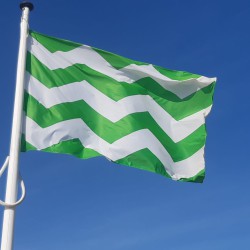FAQs
Urgent questions?
- What should you do in an emergency?
In a life-threatening emergency, always call 112! If you don’t have a phone with you or no coverage, the beach stations have SOS phones where you can call our lifeguards, or the emergency room if nobody is present.
What about if you need help, but it’s not a life-threatening emergency? Go to one of our beach stations or speak to a lifeguard. All our lifeguards are qualified to give first aid, and can help you further.
- Where are the beach stations on the beach in Westland?
In 's-Gravenzande, there are lifeguard stations at Slag Vlugtenburg and Bankdijk. There is an unmanned station at Arendsduin (with an SOS phone). In Monster, there is a lifeguard station between ‘de Kareldoormanweg’ beach and 'Strandweg’ beach.
- When are lifeguards present on the beach?
Lifeguards are present during the weekends from 15 May to 15 September, and 7 days a week during the summer holidays. In addition, both the ‘s-Gravenzande Lifeguards and the Monster Lifeguards have an emergency team which can be called up and deployed 24/7 in case of emergency.
- Where on the beach can I find information about the flags?
There is a sign explaining the meaning of the flags at every entrance to the beach. You can also find the explanation here: Staying Safe On The Beach - Flags
- Do I have to pay for a wristband?
No, wristbands are available free of charge from our stations/lifeguards.
- Where can I find up-to-date tide times?
There is a sign at every entrance to the beach with the daily or weekly tide times (the same sign that explains the meaning of the flags). You can also view them at getij.nl. See measuring point Hoek van Holland for ‘s-Gravenzande, and measuring point Scheveningen for Monster.
- Why should I stay away from a breakwater?
Strong, unpredictable currents can develop near a breakwater, which can quickly get you into trouble. In addition, huge differences in height can arise between the boulders in the sand, which can lead to very dangerous situations. The breakwaters are often visible at low tide, but at high tide they are completely submerged. Always keep an eye on the signs on the beach that show where a breakwater is located.
- I’d like to become a lifeguard. Where can I register?
You can find more information and/or register via www.reddingsbrigade.com (’s-Gravenzande) or via www.rbmonster.nl (Monster)
If you have an urgent question and can’t find an answer on this website, please send an e-mail to communicatie@rbmonster.nl, and we’ll gladly help you.
10 TIPS
Enjoying the beach and the water, here are some lifeguard tips!
- Please only swim on places where it is allowed and safe.
e.g. where lifeguards are on duty - Make sure you are fit and healthy enough to swim and enjoy the water sports.
And do not forget to put sun screan on! - Never swim alone.
Even the most experienced swimmer can get in trouble! (e.g. cramp) - Don’t swim near rip currents
- Alcohol and swimming do not mix!
- Don’t use floatation devices during offshore winds.
- Dig no deep holes on the beach in the sand.
Risk of collapse and suffocation. - Keep to the designated areas for practising water sport.
- Do not jump of bridges, piers or any constructions.
They are not designed for diving of jumping of in to the water. - Always keep an eye on your children,
As well as in the water as on the beach


